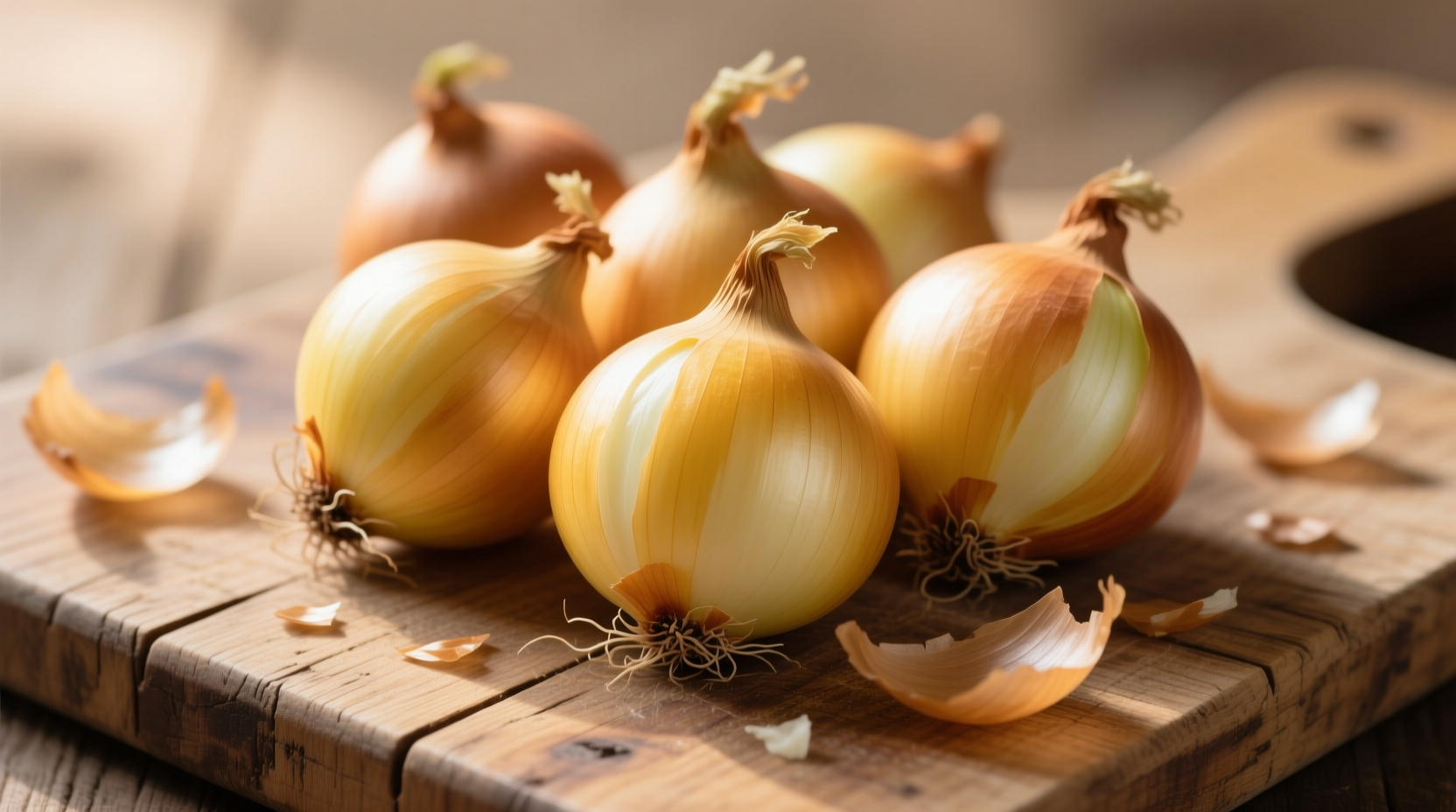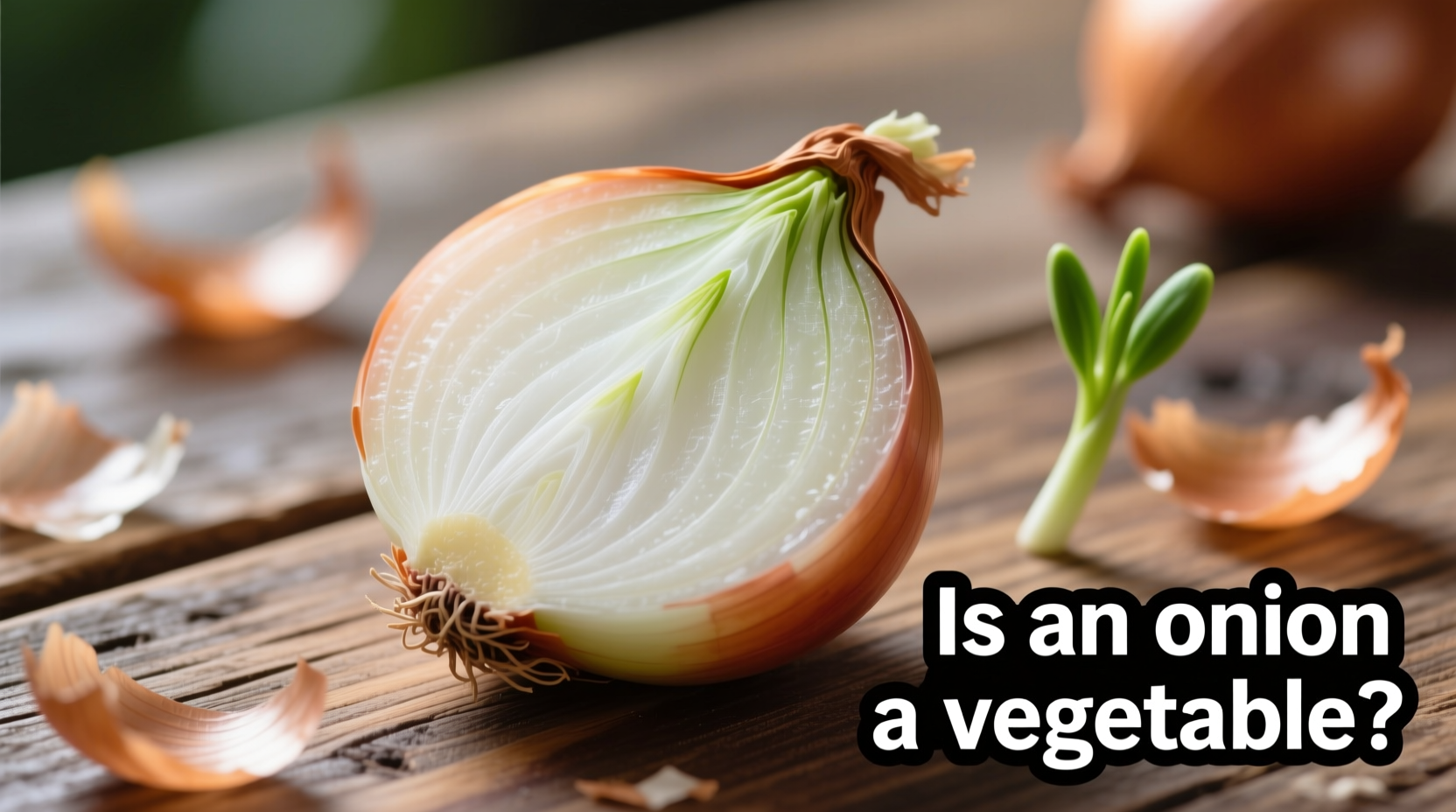The Great Onion Classification Debate: Why It Matters
When you're standing in the grocery store wondering is onion a vegetable for your meal planning, you're not alone. This question has puzzled home cooks and culinary students for generations. The confusion stems from two different classification systems: botanical science versus culinary tradition. Understanding this distinction isn't just academic—it affects how you use onions in recipes, their nutritional value, and even how they're regulated in food safety standards.
Botanical Reality: What Science Says About Onions
From a strict botanical perspective, onions (Allium cepa) aren't vegetables at all. They're classified as modified underground storage organs called bulbs. Unlike true vegetables which typically come from the leafy parts of plants, bulbs store nutrients for the plant's survival.
| Food Item | Botanical Classification | Culinary Classification |
|---|---|---|
| Onion | Bulb | Vegetable |
| Carrot | Root | Vegetable |
| Tomato | Fruit | Vegetable |
| Cucumber | Fruit | Vegetable |
This USDA classification system explains why many foods we call vegetables aren't technically vegetables from a plant biology standpoint. The key insight? Culinary classification focuses on flavor profile and usage rather than strict botanical categories.
Why Chefs and Nutritionists Call Onions Vegetables
In the kitchen and on your plate, onions function as vegetables. They provide:
- Savory flavor base for countless dishes
- Essential nutrients found in vegetable groups
- Culinary behavior matching other vegetables
- Nutritional profile aligning with vegetable recommendations
The USDA MyPlate guidelines explicitly categorize onions within the vegetable group for dietary purposes. When nutritionists discuss how many vegetables you should eat daily, onions absolutely count toward that recommendation.

Practical Implications for Your Cooking
Understanding this dual classification helps you make better culinary decisions:
When Preparing Recipes
Recognize that onions behave like vegetables in cooking processes. They caramelize rather than ripen, lack seeds like true fruits, and provide the umami base that defines many vegetable-based dishes. When a recipe calls for "chopped vegetables," onions are almost always included in that count.
Nutritional Planning
Onions contribute valuable nutrients that align with vegetable benefits:
- Rich in vitamin C and B vitamins
- Contain significant dietary fiber
- Provide flavonoids with antioxidant properties
- Low in calories while adding flavor complexity
Common Misconceptions Clarified
"If onions aren't vegetables botanically, are they fruits?" No—fruits develop from the flower and contain seeds, which onions don't.
"Are onions considered root vegetables?" Technically no, though they're often grouped with root vegetables for culinary purposes. True root vegetables (like carrots and beets) are taproots, while onions are bulbs.
"Does this classification affect how I should store onions?" Absolutely. Understanding onions as bulbs explains why they require different storage conditions than leafy vegetables—they need cool, dark, dry environments to prevent sprouting.
Why This Classification Confusion Exists
The historical evolution of food classification reveals why is onion a vegetable remains such a persistent question. Before modern botany, foods were categorized by usage rather than scientific classification. The term "vegetable" entered English in the 15th century simply meaning "plant-derived food." It wasn't until the 18th century that botanical classification systems began distinguishing between different plant parts.
This historical context explains why culinary traditions and scientific classifications diverged. Chefs continued using practical categories based on flavor and usage, while botanists developed precise scientific terminology.
Practical Takeaways for Home Cooks
Here's how to apply this knowledge immediately:
- Treat onions as vegetables in meal planning and recipe development
- Count onions toward your daily vegetable intake recommendations
- Store onions separately from true root vegetables to optimize shelf life
- Understand that many "vegetables" have similar botanical-culinary classification differences
When someone asks is onion a vegetable, you can now confidently explain both perspectives while emphasizing their practical role as vegetables in cooking and nutrition. This understanding helps you make more informed decisions in the kitchen and when planning balanced meals.











 浙公网安备
33010002000092号
浙公网安备
33010002000092号 浙B2-20120091-4
浙B2-20120091-4